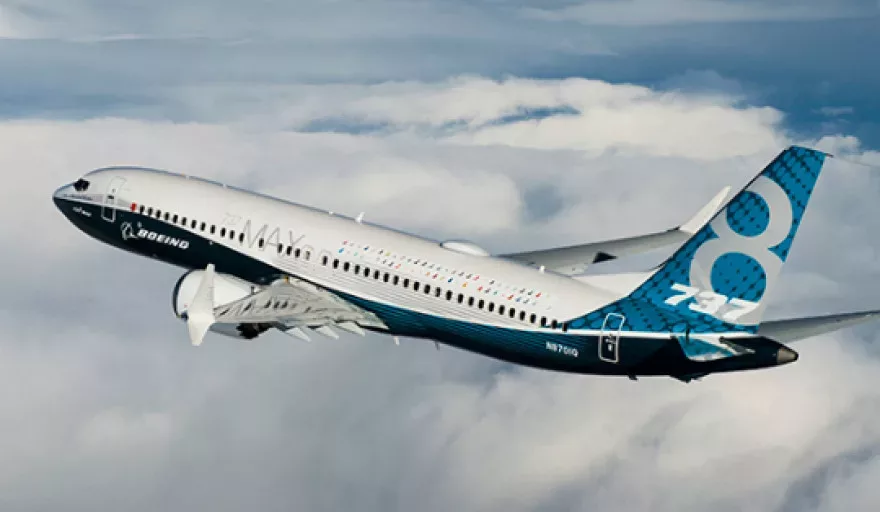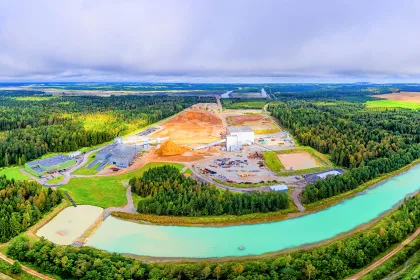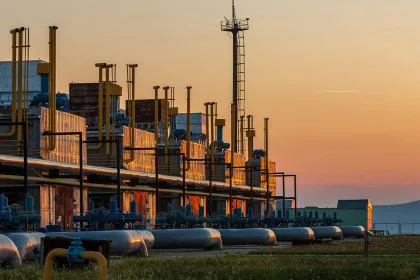Boeing has announced that it plans to open a production facility in Sheffield, UK, to manufacture high-tech components for Boeing’s Next-Generation 737, 737 MAX and 777 aircraft. These actuation systems will be used on the trailing edge of wings of these models.
The new facility, the result of a Boeing investment of more than £20 million, is part of a broader plan by Boeing to begin in-house manufacturing of key actuation components and systems in the US and UK to enhance production efficiency and reduce cost in its supply chain.
Boeing’s new UK facility, to be named Boeing Sheffield, will produce actuators in Boeing’s first manufacturing facility in Europe, supporting global growth and competitiveness for the world’s largest aerospace Company and enabling access to UK talent and capability. Boeing Commercial Airplanes’ (BCA) facility in Portland, Oregon, US will also produce actuators and assemble actuation systems for these models as a new work statement.
“The UK provides Boeing with the talent and infrastructure we need to grow and maintain a high level of productivity and quality to meet our significant order book,” said Sir Michael Arthur, president of Boeing Europe and Managing Director of Boeing UK and Ireland. “We are proud to expand our relationship with the UK still further with Boeing Sheffield. Our decision to start manufacturing high-value components in the UK is a step-change in our engagement and a further example of Boeing’s commitment to grow here, supporting the UK’s long-term prosperity.”
Boeing Sheffield will employ approximately 30 people when it opens as part of BCA’s Fabrication operations and will work closely with Boeing Portland, a Company Centre of Excellence for complex machining, gear systems and flight controls. The establishment of Boeing Sheffield will also open up new opportunities for UK suppliers to bid for work.
Subject to local authority and other relevant planning permissions, the proposed 2,300-square-metre (25,000 square feet) Boeing Sheffield facility will be built alongside The University of Sheffield’s Advanced Manufacturing Research Centre with Boeing (AMRC), a world-class machining and materials research campus founded in 2001 by Boeing and the University of Sheffield.
“This announcement is the culmination of a successful relationship that has developed since the AMRC was founded and reinforces that our region is a leading location for high-value advanced manufacturing,” said Professor Keith Ridgway CBE, executive dean of the AMRC with Boeing. “We look forward to supporting Boeing and continuing to ensure that UK manufacturers remain competitive, through access to our expertise here at the AMRC.”
Boeing expects to recruit UK employees for the site as early as 2018, capitalising on the skilled workforce in Sheffield as well as the AMRC’s capabilities. Boeing also plans to initiate a major research & development programme with the AMRC to develop new manufacturing techniques that can be applied in the new Boeing Sheffield facility. The Sheffield City Region Combined Authority will support this through the provision of grant funding, subject to agreeing the formal terms and conditions of that funding.
“Boeing Sheffield is an investment in manufacturing that will benefit our customers by driving improvements in quality and efficiency,” said Jenette Ramos, Vice President and General Manager of Boeing Fabrication. “The expanded fabrication capability will grow our existing operations and strengthen our global services.”
Trailing edge actuation systems are responsible for extending and retracting the wing’s flaps during different phases of flight. The flaps add lift to enable take-off and landing at lower speeds and provide drag to help slow the aircraft.
The UK Government and Boeing announced a long-term initiative for prosperity and growth in the UK in July, 2016. Boeing continues to look for ways to deliver additional UK growth across its commercial and defence businesses with valued partners and suppliers.































